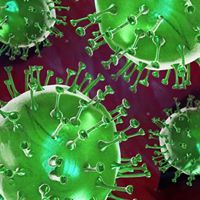Jan 30, 2020
Consideration by the United Nations of a Declaration on Human Cloning for Therapeutic Reasons
Posted by Paul Battista in categories: biotech/medical, law
Progress must not be held back by the fearful and ignorant. Progress will be made with or without permission. New and useful technology will emerge to help humanity despite those that cannot understand how they might benefit. This is happening and will continue to happen as it has behind closed doors and in secret but it can be different. It can be well regulated, it can be well informed, and results can be more readily available for the purpose of doing great things by voting YES to Human Cloning for Therapeutic Reasons and showing support for Science.
We, the undersigned, urge the United Nations to establish a timetable for a declaration on human cloning for therapeutic reasons. As you are aware, the General Assembly of the United Nations adopted Resolution 59/280, containing the UN Declaration on Human Cloning, on 8 March 2005, by a recorded vote of 84 to 34, with 37 abstentions. The Declaration culminated an effort that had commenced in 2001 with a proposal by France and Germany for a convention against reproductive cloning of human beings. For three-and-a-half years a major confrontation took place at the United Nations between those states favouring a narrow ban limited to cloning for reproductive purposes, and those insisting on prohibiting all forms of human cloning, including for ‘therapeutic’ purposes.
Not only was the Declaration adopted by a vote, it was carried only by a plurality (84 states), not even a majority, of states members of the United Nations. Moreover, the text of the Declaration is ambiguous in terms of calling upon states both to adopt all necessary measures to protect adequately human life in the application of life sciences and to prohibit all forms of human cloning inasmuch as they are incompatible with human dignity and the protection of human life.



















